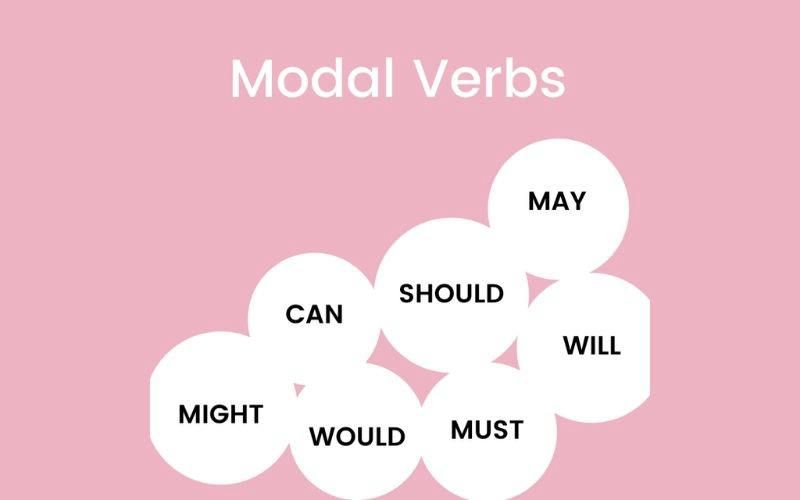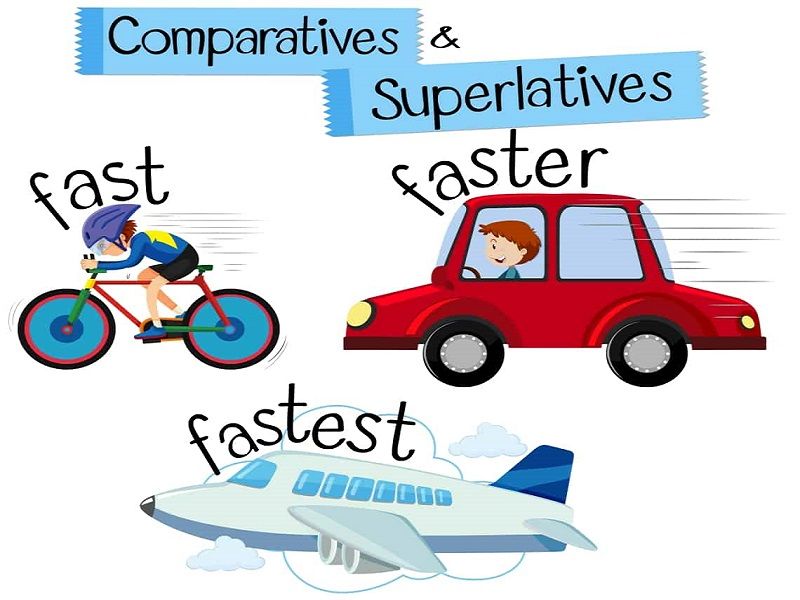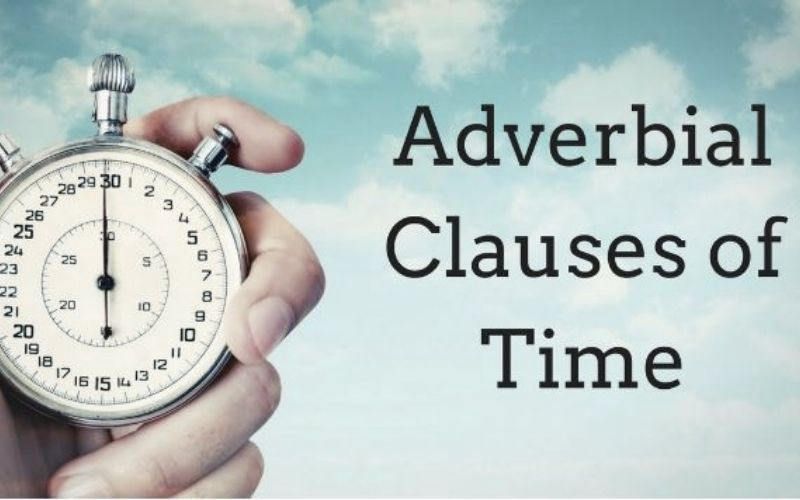Đối với các bạn học sinh THPT thì tiếng là một môn vô cùng khó đươc điểm cao nếu như không nắm chắc ngữ pháp. Để chuẩn bị kiến thức vững vàng trước khi thi học kỳ 2 cuối cấp 3- cấp THPT. Bài viết sau đây Bamboo sẽ tổng hợp bộ đề cương ôn tập thi học kỳ 2 lớp 12 môn tiếng anh để các bạn cùng tham khảo nhé!
Modal verbs
Could/ May/ Might
Những từ này diễn tả những trạng thái không chắc chắn (có thể)
Ex: Lan could read when she was four.
Possibly, maybe = perhaps: có lẽ. có khả năng (chỉ dự đoán)
Ex: I don’t know where Vy is. Maybe she is in her room.
Should
Được dùng để nói về lời khuyên hoặc một đề nghị nào đó
Ex: You should go to bed soon
Must
Được dùng để chỉ trách nhiệm hoặc bổn phận của một ai đó. Must có nghĩa sâu sắc mang tính ép buộc hơn should. Với should sẽ được sự lựa chọn làm hoặc không nhưng với must sẽ không có sự lựa chọn.
Ex: An automobile must have gasoline to run
Have to
Have to có nghĩa gần như must, nhưng không mang tính bắt buộc mà chỉ thấy cần phải làm.
Ex: – I need some meat. I have to go to the butcher’s.
– Does your father have to go at once?
Could/ May/ Might + Have+ P.P
Được dùng để chỉ khả năng xảy ra trong quá khứ
Ex:It may have rained last night, but I’m not sure
Should + Have+ P.P
Đây là cách nói về trách nhiệm hay bổn phận trong quá khứ tuy nhiên không được xảy ra trong quá khứ.
Ex: John should have gone to the post office this morning. (He did not go to the post office)
Must + Have + P.P
Một số suy luận hợp lý trong quá khứ
Ex: Lan did very well on the exam. She must have studied hard.
In the present: MODAL +BE + P.P
In the past: MODAL + HAVE + BEEN + P.P

SO – THEREFORE – BUT – HOWEVER
So
- So: Dùng để nói kết quả (vì vậy)
- Thường được viết giữa câu hoặc sau dấu phẩy, không đứng đầu câu trong văn viết
Ex: The rain began to fall, so we went to home
Therefore
- Therefore mang nghĩa vì thế
- Thường đứng đầu câu, sau đó có dấu phẩy,
- Therefore đứng giữa câu, trước dùng dấu chấm phẩy, sau có dấu phẩy hoặc không có
Ex: She broke the rules of the school; therefore she had to punished.
CHÚ Ý: “So” dùng thông dụng trong văn nói, “therefore” trang trọng hơn, thường dùng trong văn viết.
But
- But có nghĩa là nhưng ( chỉ sự tương phản hoàn toàn)
- Không đứng đầu câu( trong văn viết), thường đứng giữa câu và trước có dấu phẩy.
Ex: It was midnight, but the restaurant was still open.
However
- Tuy nhiên ( thể hiện sự nhượng bộ,sự trái ngược nhưng không đối nghịch nhau hoàn toàn)
- Thường đứng đầu câu, sau đó có dấu phẩy, thường được dùng trong văn viết
- However đứng giữa câu, trước có dấu chấm phẩy, sau có dấu phẩy hoặc không có
Ex: Lan is a very good student; however Hung is much better than her.

CHÚ Ý: “But” dùng thông dụng trong văn nói, “however” trang trọng hơn, thường dùng trong văn viết.
TRANSITIVE AND IN TRANSITIVE VERBS: NGOẠI ĐỘNG TỪ VÀ NỘI ĐỘNG TỪ
Transitive verbs: Ngoại động từ
- Là những động từ có đối tượng tiếp nhận hành động như tân ngữ theo sau để hoàn thiện nghĩa của câu.
- Thông tin phía sau thường dùng động từ trả lời cho câu hỏi: AI, CÁI GÌ
- ride, find, finish, read, write, meet, kill, help, climb, clean, catch,teach, study, build, buy, sell, cook, paint, take, tell, watch…
Ex: He drove the boat very fast.
Intransitive verbs: Nội động từ
- Là những động từ không cần đối tượng tiếp nhận hành động như tân ngữ theo sau và nghĩa của câu vẫn đầy đủ.
- Thông tin phía sau động từ trả lời cho các câu hỏi: Ở ĐÂU, KHI NÀO, NHƯ THẾ NÀO?
- walk, sleep, grow, arrive, lie, rain, exist, occur, breathe, run,cry, go, fall, happen, sit, stand, swim,…
Ex: The baby was crying in the room.
Comparison
So sánh bằng (positive form)
S + be + as + Adj + as + Noun/ Pronoun/ clause
Ex: She is as tall as me
- So sánh bằng nhau có thể thay thế bằng cấu trúc The same as.
S + V (not)+ the same + (Noun) as+ Noun/ Pronoun
Ex: Tom is as old as Mary = Tom is the same age as Mary.
- Hoặc less …………..than = not …as/ so …..as (kém hơn, không bằng)
Ex: This dress is less expensive than that one = This dress isn’t as/ so expensive as that
So sánh hơn (comparative form)
Tính từ, trạng từ ngắn (short adj, adv): là những tính từ, trạng từ có 1 âm tiết hoặc những tính từ, trạng từ có 2 âm tiết kết thúc bằng – er, – ow, – y, – le.
S + V (not)+ short adj/adv + er + than + Noun/ Pronoun/ Clause
EX: He is taller than me.
Note:
- So sánh hơn có thể nhấn mạnh bằng cách thêm much hoặc far. Ngoài ra, có thể thêm a lot, a bit, a little, rather cũng có thể được dùng trong cấp so sánh hơn.
Ex: She watch is much/ far more expensive than mine.
- Trong lối văn thân mật, tân ngữ của đại từ nhân xưng (me, you, us, them, her, him, it) thường được dùng sau as hoặc than.
Ex: He is older than me.
- Trong lối văn trang trọng, đại từ nhân xưng thường được dùng (thường đi với động từ hoặc trợ động từ)
Ex: They have more money than we have.
Jane speaks English more fluently than I do.
- More và most được dùng để thành lập hình thức so sánh của các trạng từ bằng đuôi – ly (ngoại trừ trường hợp early.)
- Một số tính từ hai âm tiết có thể có cả 2 hình thức so sánh (-er/more và – est/ most)
So sánh nhất (superlative form)
- S + V (not) the + short adj/ adv + est + Noun
Ex: I’m the happiest man in the world.
- S + V (not) the +most + long adj/ adv + Noun
Ex: Love is the most important thing.
So sánh kép (double comparatives)
- So sánh đồng tiến (càng……..càng): diễn sự cùng thay đổi (tăng hoặc giảm đi về số lượng hoặc mức độ) của một sự việc.
- So sánh lũy tiến (càng ngày càng): diễn đạt sự tăng dần hoặc giảm dần 1 cách liên tục S + V + short adj/ adv + er + and + short adj/ adv + er…….
EX:
- Betty is younger and younger.
- He became less and less interested in politics.

ADVERBIAL CLAUSES OF TIME
Mệnh đề trạng ngữ chỉ thời gian là một mệnh đề phụ, bắt đầu bằng một trong những liên từ chỉ thời gian như: when, whenever, while, before, after, as soon as, just after, since.

When
- Động từ mệnh đề when chia thì đơn
- When + S + hiện tại hoàn thành, S + tương lai đơn: để nhấn mạnh hành động 1 xảy ra hoàn toàn trước hành động 2.
Ex: When I have finished my book, I will lend it to you.
- When + S + quá khứ đơn, S + quá khứ đơn: chỉ 2 việc xảy ra liên tục trong quá khứ.
Ex: When he opened the door, the dog ran into the house.
- When + S + quá khứ đơn, S + quá khứ tiếp diễn: chỉ hành động 1 ngắn, hành động 2 kéo dài trong quá khứ
Ex: When she came home yesterday, he was still sleeping.
- When + S + quá khứ đơn, S + quá khứ hoàn thành: hành động 1 xảy ra sau, hành động 2 xảy ra trước.
Ex: When I arrived at the station yesterday, the bus had just left.
While: trong khi
- Động từ ở mệnh đề while luôn chia ở thì tiếp diễn
- S + hiện tại đơn + while + S + hiện tại tiếp diễn.
Ex: He usually reads a newspaper while he is waiting for the bus.
- While + S + hiện tại tiếp diễn, S + tương lai đơn.
Ex: While we are studying tomorrow, our principal will come to see our class.
- S + quá khứ đơn + while + S + quá khứ tiếp diễn.
Ex: Yesterday he read a newspaper while he was waiting for me.
- S + quá khứ đơn, S + quá khứ hoàn thành + while + S + quá khứ hoàn thành tiếp diễn.
Ex: Yesterday I asked the librarian the book that the professor had recommended while he had been giving the history lesson.
Before
- Before + Ving, S + V: khi 2 chủ từ giống nhau.
Ex: Before going to bed, I finished my homework.
- Before + S + quá khứ đơn, S + quá khứ hoàn thành: hành động 1 xảy ra sau, hành động 2 xảy ra trước.
Ex: Before I went to bed last night, I had finished my homework.
- Before + S + hiện tại đơn, S + hiện tại đơn: 2 hành động xảy ra liên tục, thường xuyên ở hiện tại.
Ex: Before I go to bed, I usually finish my homework.
- Before + S + hiện tại đơn, S + tương lai đơn: thì tương lai đơn được thế bằng thì hiện tại đơn vì có liên từ before.
Ex: Before you come tomorrow, I will finish my work.
- Before + S + hiện tại đơn, S + tương lai hoàn thành: nhấn mạnh hành động 2 hoàn thành trước hành động 1 ở tương lai.
Ex: Before the manage comes back next week, we will have finished the project.
After, just after
- After + Ving, S + V: khi 2 chủ từ trong câu giống nhau.
Ex: After finishing my work, the officer went home.
- After + S + quá khứ hoàn thành, S + quá khứ đơn.
Ex: After the worker had finished the work, he went home.
- After + S + hiện tại đơn, S + tương lai đơn.
Ex: After he finishes the work tomorrow, he will go home.
- After + S + hiện tại hoàn thành, S + tương lai đơn: để nhấn mạnh sự việc 1 xảy ra hoàn thành trước sự việc 2 ở tương lai.
Ex: After I have passed the next exam, I will go on holiday.
As soon as/ Just as/ Just after: ngay sau khi
- As soon as/ Just as/ Just after + S + quá khứ đơn + S + quá khứ đơn.
- Ex: As soon as/ Just as/ Just after he had got/ got home, the bell rang.
- As soon as + S + hiện tại đơn, S + tương lai đơn: có as soon as thì tương lai đơn => hiện tại đơn.
Ex: As soon as he passes the exam next month, he will go on holiday.
Since
- S + hiện tại hoàn thành + since + S + quá khứ đơn.
Ex: I have studied in this school since I moved to this town.
- S + hiện tại hoàn thành (tiếp diễn) + since + S + hiện tại hoàn thành tiếp diễn: dùng nhấn mạnh sự việc còn tiếp tục đến hiện tại.
Ex: He has been selling the lottery since he has lived/ has been living in this city.
No sooner … than
- No sooner + had + S + V3 + than + S + quá khứ đơn.
Ex: No sooner had he come home than the telephone rang.
- Hardly + had + S + V3 + when + S + quá khứ đơn.
Ex: Hardly had I arrived when it began to rain.
Bài tập tiếng anh củng cố kiến thức có đáp án
Đề 1:
REWRITE THE FOLLOWING SENTENCES
- 1.Because I was sleepy, I took a nap. SO
- It was cold, but I didn’t put on my coat HOWEVER
- The nurse didn’t bring Mr Hill a glass of water even though he asked her 3 times. BUT
- Because of his failure at the exam, Tim didn’t want to meet anyone. THEREFORE
- Red is a bright color, but cat can’t see it. EVEN THOUGH
Complete the sentences. Use the comparative form of one of the words in the list.
big; early; reliable; serious; thin;
- I was feeling tired last night, so I went to bed …………………. than usual.
- I’d like to have a _________________ car. The one I’ve got keeps breaking down.
- Unfortunately, her illness was_________________ than we thought at first.
- You look_________________. Have you lost weight?
- I want a________________ flat. We don’t have enough space here.
Complete the sentences. Use a superlative (-est or most…) or a comparative (-er or more…)
- We stay at the ______________ hotel in the town. (cheap)
- Our hotel was ______________ than all the others in the town. (cheap)
- The United States is very large but Canada is ______________. (large)
- What’s the__________________ river in the world? (long)
- What is the________________ sport in your country? (popular)
- Everest is the_____________ mountain in the world. It is ______________ than any other mountains. (high)
- We had a great holiday. It was one of the______________ holidays we’re ever had. (enjoyable)
- I prefer this chair to the other one. It’s ______________ . (comfortable)
- What’s the______________ way of getting from here to the station? (quick)
- Mr. and Mrs. Brown have got three daughters. The______________ is 14 years old. (old)
Choose the best option that best completes each sentence:
1.He is not______________ tall as his father.
a. the
b. as
c. than
d. more
2.John’s grades are_____________than his sister’s.
a. higher
b. more high
c. more higher
d. the highest
3.Deana is the_______________ of the three sisters.
a. most short
b. shorter
c. shortest
d. more short
4.She speaks English as_____________ as her friend does.
a.good
b. well
c. better
d. the best
5.Of the three shirts, this one is the_____________ .
a.prettier
b.most prettiest
c.prettiest
d.most pretty
Rewrite the following sentences using double comparative.
- We got close to the fire. we felt warm
- If the knife is sharp, it is easy to cut something with.
- Bill talked very fast. I became confused.
- Last year, when I met Mary, she was ugly.Now she has become very beautiful.
- When you blow up a ballon, at first it small, the it becomes quite big.
Choose the most appropriate preposition to fill in each blank.
up; after; on; off; in;
- I’d like to listen to some music. Would you please turn the radio…..?
- Please try to give…. smoking. It is not good for your health.
- Don’t put…. your homework anymore… the deadline is coming.
- When I was young, my uncle looked…. me because my parents were abroad.
- Before you enter the class, you need to fill… this form so that we can have your personal information.
Rewrite the following sentences using the suggested word in the bracket
- Is it true that you haven’t found a job yet? ( looking)
- I can just about live on this a mount of money. ( get)
- You mustn’t allow your troubles to depress you, you know. ( get)
- I can’t stand his behavior to me any more. (put)
- This is one of the biggest problems historians have ever faced.( come)
- All the pupils respect their teacher. (look)
- I’m thinking about my next holiday with pleasure. (look)
- She is always quarreling with her brother. ( get)
- You don’t need to wear your rain coat. it is so hot here. ( take)
Mark the letter A, B, C, or D on your answer sheet to indicate the correct answer to each of the following questions.
1: Remember to turn _______ the lights when you don’t use them.
A. over B. off C. down D. up
2: Go ________ that report again before we submit it.
A. over B. on C. in D. off
3: The French Quarter is_________ famous and the oldest section of New Orleans.
A more B. the most C. the more D. most
4: A: “ Congratulations on your success!” B: “ ________ .”
A. Not at all
B. All right
C. Thank you D
. The same to you
5: Will it be necessary for us_________ this accident to the police?
A. report B. to reporting C. to report D. reporting
6: . It is considered women are suited for________ childbearing and homemaking rather than social activities.
A. a
B. an
C. the
D. Ø
7: The homeless people_____story appeared in the paper last week have now found a place to live.
A.who
B. whom
C. that
D. whose
8: Mary is ________ her sister.
A.most short
B. shorter than
C. more short
D. the shortest of
9: We were still living there when our father________.
A. had died
B. dies
C. died
D. is dying
10: ___________ up! The bus is coming.
A. Wash
B. Put
C. Wake
D. Hurry
11: From 1865 to 1875, a remarkable variety of inventions_________.
A. was produced
B. were produced
C. are produced
D. produced
12: These flowers ________ in a warm sunny place.
A. should be kept
B. keep
C. be kept
D. should be keep
13: The_________ you are, the more quickly you learn.
A. more young
B. youngest
C. younger
D. young
14: He said that he ________ his homework since 7 o’clock.
A. had done
B. has done
C. was doing
D. did
15: The bomb ________ with a loud bang which could be heard all over the town.
A. went off
B. took off
C. got over
D. turned up
[button size=”medium” style=”primary” text=”TẢI BỘ ĐỀ THI” link=”https://drive.google.com/drive/folders/1dFJrblm7utziP0TC0_o7Um8kFCQ-WJZM” target=””]Đề 2
Choose the letter A, B, C, or D to indicate the word that differs from the other three in the position of primary stress in questions 1 and 2.
A.happen B. begin C. prefer D. prepare
A.industry B. employment C. tradition D. coherence
Choose the letter A, B, C, or D to indicate the word whose underlined part differs from the other three in pronunciation in questions 3 and 4.
A improved B. returned C. arrived D. stopped
A. species B. nest C. special D. helpful
III. Choose the best answer to complete the following sentences.
- This chess game is going to last ages. They ____ it until midnight.
a. won’t have finished
b. will finish
c. have finished
d. finish
2. ____ this book by the time it is due back to the library?
a. Will you read
b. Will you have read
c. Will you be reading
d. Have you read
3.The more you talk about the situation, ____.
a. it seems worse
b. the worse it seems
c. the worse does it seem
d. it seems the worse
4.____ the Sun is, ____ the shadow is.
a. The higher / the low
b. The more high/ the more low
c. The higher / the lower
d. The more higher / the more lower
5. Life on Earth is disappearing fast and will continue to do so unless urgent action is taken.
a. vanishing
b. damaging
c. polluting
d. destroying
6. By December next year, we ____ in this house for twenty years.
a. will have lived
b. have lived
c. will live
d. had live
7. ____ it is, ____ miserable I feel.
a. The hotter / more
b. The hotter / the more
c. The more hotter / the more
d. The more hot / the more
8. The saola is also indirectly threatened by insufficient ____ to and investment in its conservation.
a. interest
b. attention
c. care
d. treatment
9. The better the weather is, ____.
a. the beaches get the more crowded
b. the beaches get the most crowded
c. the most crowded the beaches get
D. the more crowded the beaches get
10. Hunting for meat and burning forests for soil cause destruction to wildlife.
a. organization
b. contamination
c. protection
d. damage
11. Species become extinct or endangered for ____ number of reasons, but ____ primary cause is the destruction of habitat by human activities.
a. Ø/ a
b. a/ the
c. the/ a
d. Ø/ Ø
12. I think I ____ my door key. I can’t find it anywhere.
a. will have lost
b. am losing
c. have lost
d. will lose
13. Only a few of the many species at risk of extinction actually make it to the lists and obtain legal ____.
a. protect
b. protection
c. protective
d. protector
14. The meal was a bit ____ expensive than we expected, but it was very nice.
a. least
b. less
c. more
d. most
15. I’ve never eaten such a strange thing ____ this before.
a.similar
b. as
c. same
d. look like
16. By the time we get there, the film ____.
a. starts
b. started
c. will start
d. will have started
[button size=”medium” style=”primary” text=”TẢI BỘ ĐỀ THI” link=”https://drive.google.com/drive/folders/1dFJrblm7utziP0TC0_o7Um8kFCQ-WJZM” target=””]Xem thêm:
- Bộ đề cương ôn tập học kỳ 2 môn toán lớp 12
- Tổng hợp bộ đề thi mẫu kì thi đánh giá năng lực 2022 môn văn
- Tổng hợp những bộ đề thi mẫu kì thi đánh giá năng lực 2022 môn Tiếng Anh
Bài viết trên đã tóm tắt các kiến thức cần thiết và cung cấp bộ đề cương ôn tập tiếng anh lớp 12 học kỳ 2 đến với các bạn để có thể chuẩn bị tốt cho kì thi. Chúc các bạn thi tốt!











